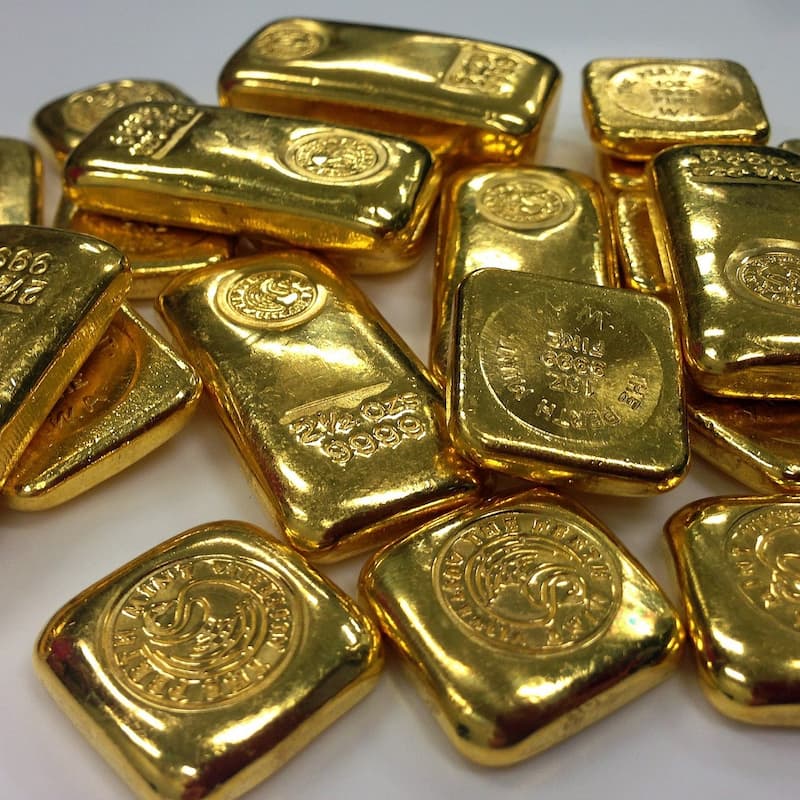Alt Investments
In Tough Markets, Gold Shines For Wealth Managers

Fashions come and go, including investments and attitudes toward money. Gold, it appears, has staying power, and recent events have supported the metal's price ascent.
Any doubts wealth advisors might have had about holding the
“relic” of gold have been squashed for now as geopolitical
events and associated market angst prevail.
Gold fetched $2,912 per ounce around 11:00 GMT in the UK today
(7.00 am Eastern) and has risen 35 per cent from a year earlier.
By contrast, the US S&P 500 Index of stocks has risen 9.7 per
cent and is down 4.33 per cent since the start of January, wiping
out the post-election bump. The MSCI World Index of developed
countries’ stocks, in dollars, is down 1.3 per cent this year.
European equities with exposure to defense spending have risen,
however.
Wealth managers, such as UBS and Pictet in Switzerland, and DWS,
the German firm (see examples
here, here
and
here, respectively), have been positive on gold for its
hedging qualities. In a flurry of notes today in the aftermath of
stock market weakness and concerns about the direction of US
economic policy, it seems that gold isn’t going to lose its
shine. (See this March 5
market coverage, which also touches on gold.)
As attention turns to how asset allocation will be affected by
geopolitical dramas, the episode puts a spotlight on gold’s
traditional safe-haven status. This news service is also working
on the investment implications – including for those using ESG
approaches – of the heightened focus on defense
spending.
“Gold continues to capitalize on the current market environment,
where uncertainty surrounds US trade policy, exacerbating
tensions between the US and its allies. After the tariffs
recently imposed by the Trump administration on steel and
aluminum imports, concerns about the impact of these policies on
global economic growth have fueled demand for gold as a
safe-haven asset,” Rania Gule, senior market analyst at XS.com,
said.
Concerns that the risk of a US recession could be more likely,
amid angry messages between the US, Canada and elsewhere over
tariffs, have fed into the gold price.
Gule said the “increased likelihood of an economic recession in
the US has heightened investor concerns.” He argues that the
summit in Jeddah, Saudi Arabia this week between the US and
Ukraine will be a “key determinant for the precious metal's
direction shortly, as gold benefits from the weakening US dollar
and falling Treasury bond yields, solidifying its position as a
safe-haven asset amidst unstable economic conditions.”
“Over time, in my view, concerns over global trade wars and
geopolitical risks remain at the forefront of factors supporting
gold's rise. Markets are on edge due to President Donald Trump’s
trade policies, which contribute to heightened economic
uncertainty,” he said.
Ruben Ferreira – head of Portuguese operations,
FlowCommunity, an investment and members network, said in a note
that any positive news from the summit this week will “weigh on
gold.”
Geopolitical worries have been positive for gold in recent years,
as a result of
conflict in the Middle East, for example.
Last week, following news from German Chancellor-in-waiting
Friedrich Merz that he intended to loosen the country’s debt
restrictions and heavily boost defense spending, shares in
companies linked to the sector, such as Rheinmetall rose by
double-digit percentages. In the UK, BAE Systems and France’s
Thales, aircraft makers Dassault Aviation and Saab SAAB also
climbed rapidly.